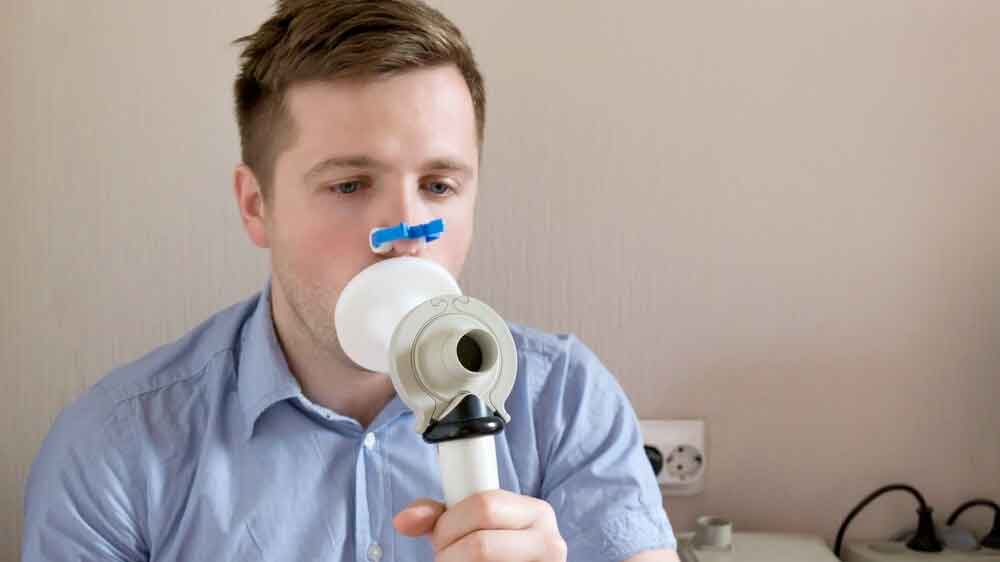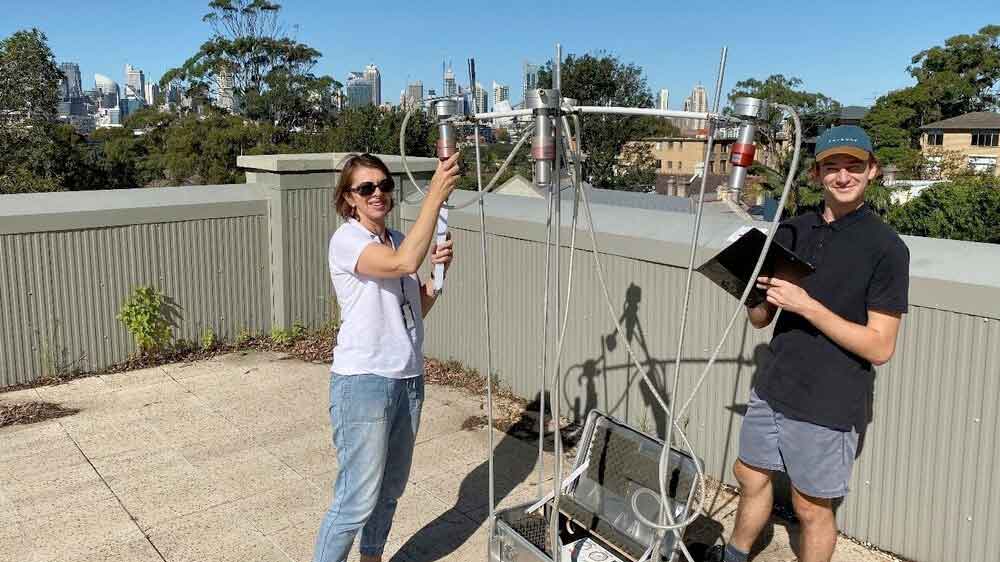The Woolcock Institute of Medical Research

Reflections from a lifetime of living with asthma
Lynette De Michiel was just 18 months old when she had her first asthma attack. For Asthma Week 2021, we tap into Lynette's knowledge and wisdom as someone who has been living with asthma since childhood. What changes has she seen? What's the key to good asthma management? What are her tips for people with asthma?
What changes have you seen over the years as someone living with asthma?
There's been an enormous amount of change.
As a child, I remember my Mum and Dad being very afraid when I had a bad asthma attack, because we lived out in the country and we weren't near anybody. Often our GP would meet us halfway somewhere with an injection of adrenaline.
Then when I was a young adult entering into the nursing profession, inhalers had just become available. Having a puffer that you could keep in your pocket was a massive improvement! In the past, it was quite a frightening experience having an asthma attack and not being near a medical facility or a doctor. It was terrifying. Having portable puffers has been an enormous step forward.
And spacers have really improved. Spacers used to be large glass bulbous things. You wouldn't carry them around. They weren't portable, whereas now they're small and plastic.
Have you seen a change in approach or attitudes to asthma?
I do think that asthma doesn't carry the stigma that it used to. Having inhalers has brought asthma more out into the open and enhanced people's understanding.
More people are aware of asthma now. They understand it's a disease, not psychological. That's what my parents were told – that it's a psychological problem.
What's the most important thing about managing asthma well?
Having good healthcare professionals around you who are willing to explain things to you.
I've been very lucky to have had wonderful doctors and pharmacists who don't just give me a prescription or dispense medication, especially with something new, but who explain things to me in detail. So I have an understanding of why I'm taking this medication and how it should be helping me.
I think that has been an enormous improvement over the years. Previously we just did as the doctor said and didn't ask any questions.
What tips do you have for people with asthma?
First and foremost, don't be afraid to seek help. Asthma is not a failure, it's not a weakness. Not being able to keep up with others because you can't breathe is not something to be ashamed of. Asthma is a condition that needs to be treated. Seeking help early is imperative.
Once you are being treated, take notice of your asthma, either symptoms or peak flows. Early intervention is the best, so you need to keep on top of how you are going.
Trust your instincts if you're not feeling well.
And follow the instructions you get from your respiratory physician, your GP, and your pharmacist. So many people don't use their inhalers correctly.
Good management means keeping up better with your peers. It means a better quality of life. It means living a normal life.
As a young person with asthma, I was quite terrified because I couldn't breathe. To have someone who understands and can explain what the disease is about, to say, 'look, don't worry, we can help you with medication, don't be afraid' – having that reassurance is huge.
Any person with asthma can see a significant improvement in their asthma if they get the right care. Make sure you get the right care, because it will make a difference and you will get better.
About Lynette
Lynette was born on the South Coast of NSW. Her parents moved to the North Coast, where it was warmer, in an attempt to help lessen her asthma attacks. They then moved south again and Lynette went to boarding school on the Southern Tablelands. She completed her nursing training and then went on to Cardiac Ultrasound. She is married with one son.
More stories from the front line
This is the first in our series of interviews for Asthma Week 2021. See the other interviews in Reflections from the asthma front line.
Find out more
- About our asthma research
- News from our respiratory research
- We’re proud to be part of the Air Nutrition – you are what you breathe campaign for Asthma Week 2021
Support our work
The Woolcock Institute of Medical research is a not-for-profit research institute. Your tax-deductible donation to the Woolcock will help us improve the quality of life for people affected by breathing disorders like asthma.
Here are some examples of what your donation can do.












